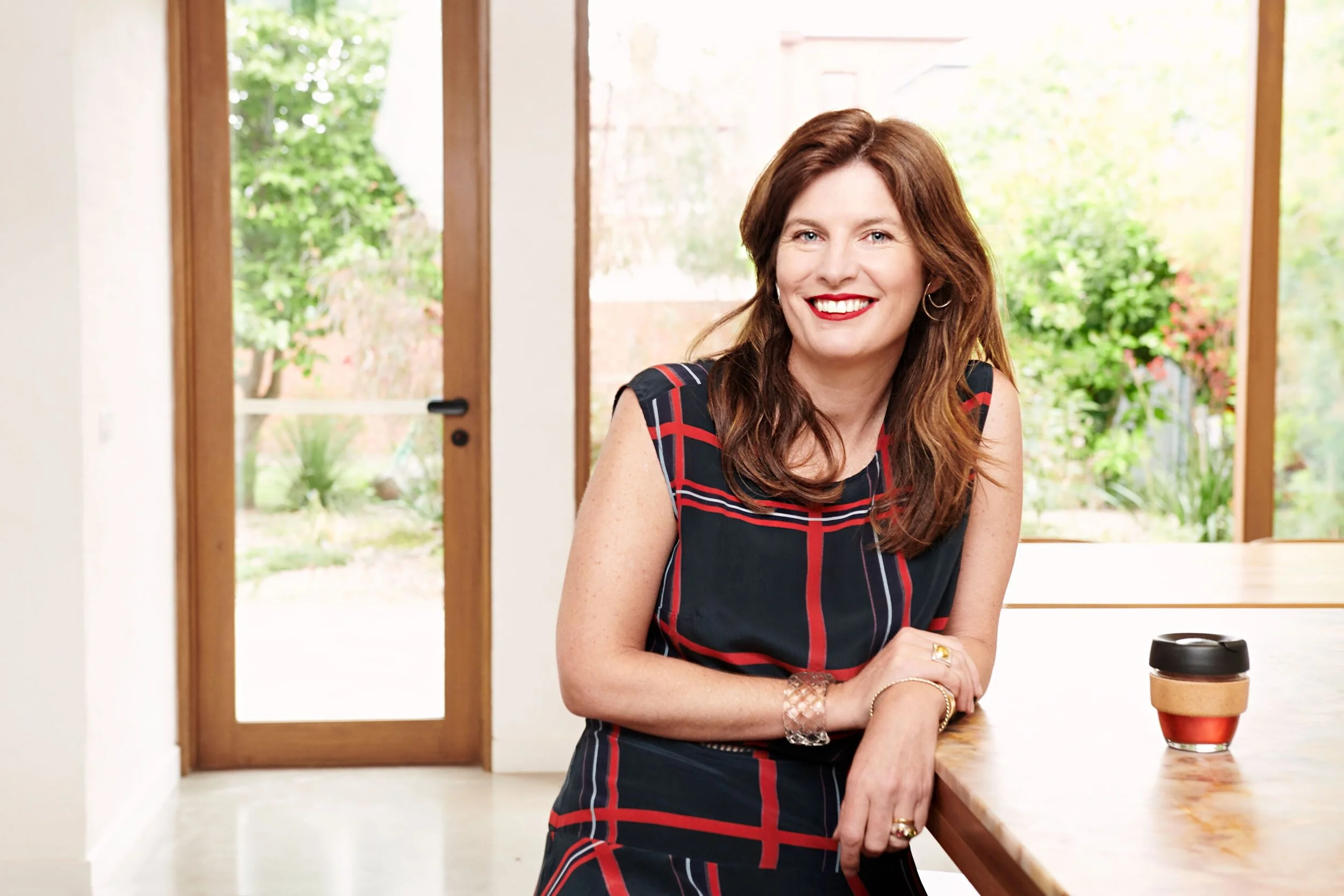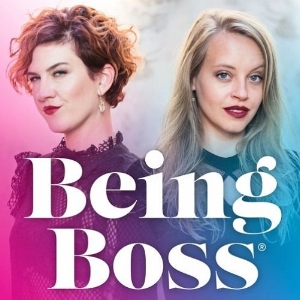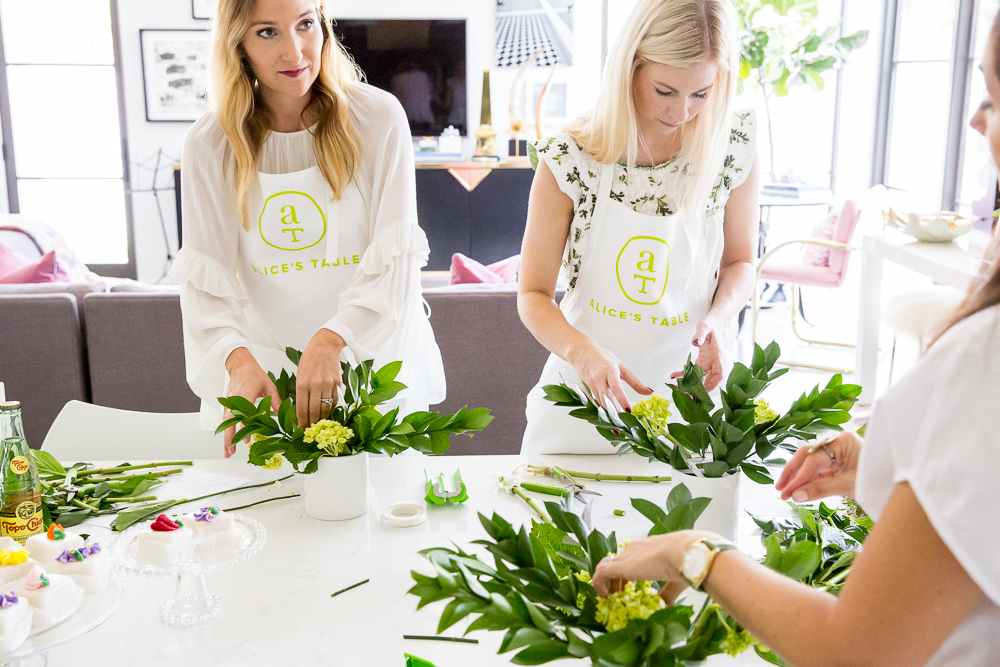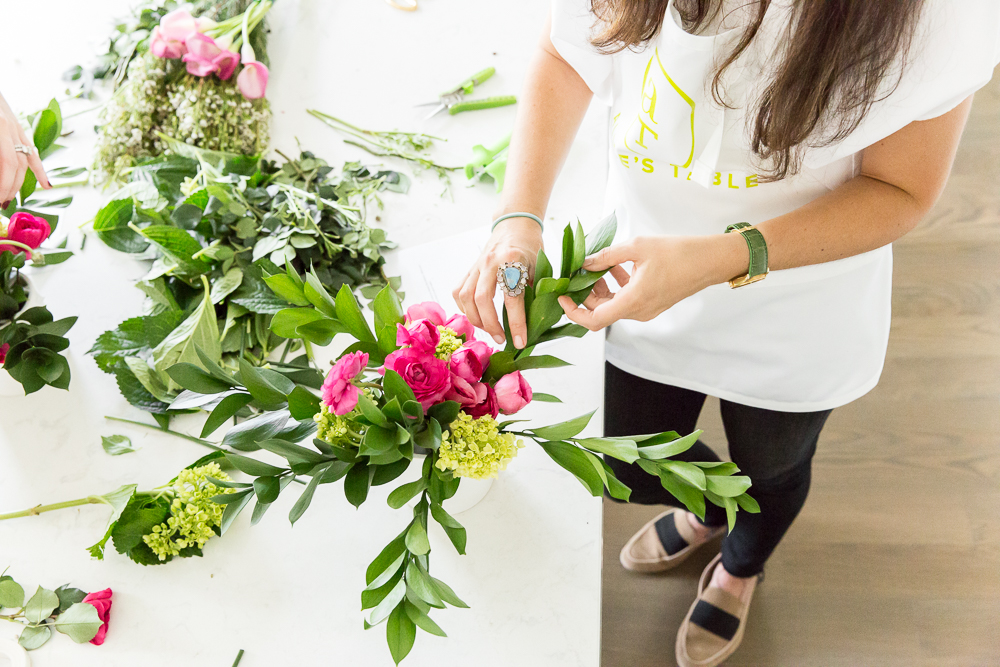Set Aside 30 Minutes This Week to Do *This* and Keep Your Small Biz On Track
Money talks.
Photo: Christina Morillo for Pexels
Most people we know move gradually make the move from side-hustle to full-time gig. It’s a great plan to be sure that you’re able to support yourself financially while you’re laying the groundwork for your new business, but it can often lead to a bit of a messy overlap between your personal and business funds. (Trust us, we’ve been there.)
You may keep pushing off getting organized until the proverbial “tomorrow” and let the task of figuring it out fall to the bottom of your to-do list. You end up losing money because of missing receipts and not planning for tax deadlines. Follow the four steps below to make getting organized easier, painless, and maybe even a little fun, all in just 30 minutes.
Step 1: Open a separate bank account for your business ASAP
Is this something that you legally need to do for your business? Maybe. Is this something that you financially need to do for your business? Absolutely.
Even if you’re starting out as a sole proprietor, which is the default structure for anyone who earns income from self-employment, you should set up a separate bank account. Why? Because even if that’s the only thing that you do to get your money organized, you’ll be miles ahead of everyone else in the organization game. You won’t need to sift through a bunch of personal transactions to find business deductions and you won’t lose precious time looking through all of those same personal transactions to see if your client has paid you.
Don’t overcomplicate your business or waste any more time looking at a hodgepodge of transactions, hoping that you’re not missing something. Take 15 minutes to set up a separate account and you’ll be one big step closer to organized money management (congratulations!).
Step 2: Create a list of deductions you can take
There are so many deductions you can take, but it's hard to catch everything. Create a list of things you can deduct to ensure you're not missing anything. Tape the list to a folder and store your receipts in there until you can get them entered into whatever bookkeeping system you use.
Everyone will have different expenses, but a good list to get started with is:
• Web hosting
• Vehicle mileage
• Work travel
• Courses, seminars, licensing, and business-related books
• Shipping and packaging
• Office supplies and equipment
• Health insurance premiums
Step 3: Know what tax forms you need to file, and when
The first few months of starting a business will fly by and you’ll be left scrambling the night before filing deadlines if you don’t pay attention to some key forms and dates.
To get this started here is some basic information for sole proprietors:
Who has to file? Generally, anyone who has net earnings from self-employment of $400 or more needs to report this income at the end of the year. And anyone who is expected to owe more than $1,000 in taxes at the end of the year needs to make quarterly estimated income tax payments.
What form do I file? Most people start their business as a sole proprietor, and the forms that you need to file at the end of the year are Schedule C or Schedule C-EZ (profit and loss from business) and Schedule SE (self-employment tax).
When do I file quarterly estimated tax payments? Keep track of estimated payment deadlines or you’ll face a penalty come tax time. Deadlines for taxes on income received each quarter are April 15, June 15, September 15, and January 15 (of the following year).
Step 4: Set a weekly money date
This won’t be your most fun date, but it’ll probably your most profitable. Set a time to check in every week and make sure that your money is on track. If you do this weekly, it’ll become so easy and quick. Once you have this done, you've earned a glass of wine and a great stress-free weekend. Some things to do weekly are:
• Send any invoices that are due
• Look at who hasn’t paid and send reminders (+ cash any checks!)
• Pay any outstanding bills
• Pay yourself weekly salary/stipend
Bonus step: Set up a bookkeeping system
Look at you, you overachiever. You’ve got this organization thing down and you want a bonus step? You can feel even more legit and in control of your money by setting up an easy bookkeeping system. This doesn’t have to take a long time and it doesn’t need to cost a lot. There is a range of easy to use programs out there (some are even free!) that are better than that excel sheet you’re using.
Remember—better to get organized now than to create problems for yourself and your business in the future.
This post was originally published on February 7, 2018, and has since been updated.
MORE ON THE BLOG
Money Matters: "Make a Profit So You Have the Space to Experiment and Make Mistakes."
The co-founder of KeepCup spills the (financial) tea.
You asked for more content around business finances, so we’re delivering. Welcome to Money Matters where we give you an inside look at the pocketbooks of CEOs and entrepreneurs. In this series, you’ll learn what successful women in business spend on office spaces and employee salaries, how they knew it was time to hire someone to manage their finances, and their best advice for talking about money.
Photo: Courtesy of Keep Cup
When Abigail Forsyth launched her reusable coffee cup 10 years ago in a bid to eradicate disposable single-use cups, she had no idea it would become the global brand it is today. Now, KeepCup has sold over 12 million reusable cups, is used in over 65 countries and their customers have diverted an estimated 8 billion disposable cups from landfill each year—not to mention she’s kickstarted the global movement to eradicate disposable coffee cups. Forsyth is a leader in the global movement to inspire reduce and reuse, with a passion to reduce the use of single-use items.
But her career didn’t start off this way. Forsyth actually had a successful career as a lawyer before joining forces with her brother to launch Bluebag cafe. This is where her awareness around single-use coffee cups was heightened and soon after, KeepCup was born. But despite the global growth, Forsyth has managed to stay completely self-funded without taking any outside investment (which she recommends to fellow entrepreneurs, too.
Read on to hear her money advice, mistakes, and financial lessons learned along the way. You’ll want to write these down.
On why she self-funded the business…
We had a small loan, some grants from the City of Melbourne and Design Victoria, cash flow from our café business Bluebag, and presales off of the KeepCup product prototype. Yes, I would recommend other entrepreneurs to self-fund their businesses. We are fortunate enough to sustain our business and grow without taking on outside investment, which means we have been able to remain nimble, iterative and independent. You need to make money to stay in business, so be wary that outside funding can compromise your ability to have a vision beyond shareholder value.
On how much she pays herself…
We are a certified B Corporation which means that, as a business, we have to meet certain standards of verified social and environmental performance, public transparency, and legal accountability and balance profit and purpose. In line with this, my earnings are capped at 10x the lowest-paid employee.
On how much to pay employees…
We have looked at payscale, similar job descriptions, and have occasionally worked with recruiters to determine appropriate living wages for all our employees. Last year, we recruited a people and culture manager, and took the time to benchmark salaries and review our remuneration structure. Things can change as the business grows, and you have a mix of old and new employees, so we had to revisit our structures and processes.
“You need to make money to stay in business, so be wary that outside funding can compromise your ability to have a vision beyond shareholder value.”
On the most important area for business owners to focus their financial energy…
Right now, all businesses must focus on carbon neutrality: decarbonizing and dematerializing their operations, use their business to make a positive contribution. There’s no business on a dead planet.
Focus your financial energy in places that align with your company’s mission. At KeepCup, our mission is to inspire the world to reduce and reuse, and we’re committed to championing the cause for a more sustainable future. In everything we do, we adopt sustainable business practices from manufacturing to our office space, all the way down to the actual product.
We’re really focused on adopting and setting best practices in sustainable product design and business, even if this means it is at an additional cost to our business. For example, we donate 1% of global revenue to environmental causes and are a certified B Corporation, as we are committed to driving the transition to the circular economy and promoting reduced consumption, reuse and repair.
On the first big expense as a business owner…
Our first big expenses were committing to tooling and the endless road of website development.
On how much they spend on office space…
Too much! We have just spent a year refitting our HQ in Melbourne, Australia to make it consistent with our company values and vision for a more sustainable future. It is a very well insulated solar-powered building with plenty of natural light and green space. Most of the furniture is second hand, and is beautiful, but does not use new resources.
“Build your business from the ground up on purpose beyond profit.”
On when she was able to start saving income…
The savings wax and wane depending on where we are at with things like product development, website updates, and premises etc. I like to have something set aside for opportunities or issues that might come up. As well as committing to providing 1% of our revenue to environmental causes, we are committed to being carbon neutral by 2025. We will see where that journey takes us. I’m also really interested in rehabilitating the natural landscape, particularly in Australia. We have just donated $100,000 for bushfire relief and commit 1% of our revenue, as opposed to profit, to environmental causes.
On setting up the business financials…
When we set up our accounting system I made a lot of noise about how it was overcooked for the simplicity of the business 10 years ago, and that decision has held us in good stead. We always had an external accountant, and our internal accountant was one of our first hires. There is a story about me paying the invoices and throwing them into a tomato box as a filing system, which may or may not be true!
On the tools, she uses to stay on top of the business financials…
In my view, the most valuable tool is a great finance team, and a great set of reports to check the ongoing health of the business. In terms of software, we use Microsoft Navision and Power BI.
On what she wishes she’d done anything differently financially…
I wish we had created a better structure at the outset in partnership with my brother. When we started the business, we were young singles—priorities shifted as the business grew. We also progressed in our personal lives, started families and our individual priorities shifted. Separating business ownership from your role in the business at the beginning is really important.
“Make a profit so you have the space to experiment and make mistakes.”
On why she thinks women should talk about money and business more…
Women should absolutely talk about money and business more. I feel a real sense of responsibility to do right by people and the planet, but it’s really important to acknowledge and talk about the fact that this has not been at the cost of financial success. It creates the space for change.
It’s been really important to me as a woman, to be commercially successful and financially independent, this gives me a voice to talk about the values I believe in and press for change.
On having financial mentors…
No. I don’t have a financial mentor, but I think business owners may very well need one depending on their circumstances. There is an endless parade of people who will line up to tell you what to do and how to do it, and whilst relying on expertise is very important, it’s equally important also ask whose interests they serve. No one will care about or think about your business more than you.
On the money mistakes she’s made along the way…
Throughout our 10 years in business, the biggest lessons I’ve learned have been around understanding margin, understanding the cost impact of waste, balance sheets, and profit and loss and having the right insurance. I would not say these are mistakes, I would say it has been a journey in deepening my understanding and balancing the internal needs of the business with the external environment in which we operate.
On her best money advice for new entrepreneurs…
Build your business from the ground up on purpose beyond profit. I truly believe businesses ought to serve a purpose that is of benefit to people and the planet. Businesses must serve the communities in which they operate, respect the natural resources (which in my view belongs to everyone), respect their employees and protect the natural world.
If you aren’t in business to dematerialize and decarbonize the economy, you are in the wrong business. I think the world is hopefully waking up to the futility of balanced books on a dead planet. We are all in this together.
On the hardest money lessons she’s learned…
Make a profit so you have the space to experiment and make mistakes.
7 Podcasts to Tune Into on International Podcast Day
Your daily commute is about to get a lot more interesting with these podcasts.
We hope your AirPods are charged and ready to go because these podcasts are so good that you won’t want to put them on pause. Filled with words of wisdom and life experiences, these shows and hosts will get you through your morning and evening commute, entertain you during your lunch break, and leave you sitting in your car even when you park your car at home because you will want to finish every episode.
Safe For Work
(N)SFW is here to remind you that things in the office can get hectic at times but Liz Dolan and Rico Gagliano are here to keep you sane during times like these. From resume and cover letter writing, to getting back into work after having a baby, Liz and Rico tackle everything hoping you will feel more fulfilled from your work life.
Switch, Pivot, Or Quit with Ahyiana Angel
Former sports entertainment publicist Ahiyana Angel made the switch to a traditionally published author will route your career trajectory from where it is to where you want to be. She is what she calls a “chief encourager” and is there to share her tips as well as interview professional women who offer their life experiences to guide you along the way.
Starving Artist with Honor Eastly
Have you heard art and money in the same sentence? Probably only when a Picasso was just sold for millions at an auction. This podcast from down under hosted by Honor Eastly talks to local artists about how they handle their finances only to find out that the term “starving artist” is just a myth.
Millennial Money
Talking about your personal finances can be awkward AF, so Certified Financial Planner and host Shannah Compton Game gives her two cents (pun intended) that is totally relatable and easy to understand. With her husband and co-host Jeff Game, this podcast features experts and anecdotes from people in literally every field you can imagine, expanding your mind and your wallet at the same time.
Being Boss: Mindset, Habits, Tactics and Lifestyle for Creative Entrepreneurs
Calling all entrepreneurs, freelancers, and side-hustlers! Whether you want to quit your day job, or are starting your own Etsy store Being Boss is dedicated to you. “Business Besties”, hosts, and authors Emily Thompson and Kathleen Shannon discuss the mindset, habits, strategies, tactics and so much more that help you do what you love while making money.
Side Hustle Pro: Women Entrepreneurs
Side Hustle Pro puts the spotlight on WOC who’ve scaled their businesses from side hustles to profitable stand-alone businesses. Hosted weekly by Nicalia Matthews Okome, learn strategies to start small and get grow-ing no matter who or where you are and features interviews with leading ladies and exciting entrepreneurs.
How it is.
From Reese Witherspoon and her team at Hello Sunshine, this podcast hosted by Diane Guerrero shares the common experiences we have lived through and learned from as women in the workforce. Topics discussed in their second season (coming soon!) include the concept of values, the desire to work, the time to work, the time to play and more. It is an all encompassing series featuring guests including Maria Menounos, Gabrielle Union, and Lena Waithe, just to name a few.
Don’t forget to also subscribe to our very own WorkParty podcast if you haven’t already!
By: Ashley Banayan
MORE FROM OUR BLOG
Guess How Often This Beverage Company Debuts A New SKU
Taking bets now.
Everyone is on the hunt for the next buzzy beverage to sip on. Companies like Suja know all about this.
The beverage brand is always working on its next product innovation. And in building Suja from a cold pressed juice company to a healthy beverage “master brand,” CEO and co-founder Jeff Church has instilled in the Suja team the importance of taking chances.
Over the company’s six years in existence, that bias toward risk-taking has become Suja’s calling card. Fueled by an innovation pipeline that debuts a new SKU every nine days on average, Suja has extended beyond its core juice line into categories like probiotic beverages, kombuchas and most recently making its debut with plant-based milks. Dedicated to consumer needs and demands, the company is setup to quickly adapt its offerings post-release based on consumer feedback and, in doing so, has learned a great deal about how to win-over fans with each new product they introduce to the market.
Innovation is the name of their game. Here are a few ways they stay in front of the market.
Probiotic Beverages: Probiotic functional beverages were first introduced to the market as a way to promote gut health but have since evolved to support overall wellness. As a response, Suja created Probiotic Vinegar Juices and Pressed Probiotic Waters to introduce their consumers to a new facet of beverages that the brand had yet to tap. The Probiotic Vinegar Juices (formerly Drinking Vinegars that launched in Sept. 2016) were born from Suja’s obsession with nutritious cold-pressed juice and digestive health and includes blends of organic Apple Cider Vinegar or Coconut Vinegar with the mother still intact, plus four billion live probiotics in every bottle. For a lighter option, in early 2016 Suja opted for Pressed Probiotic Waters enhanced with nothing but organic fruits, vegetables and vegan probiotics. At ten calories and one gram of sugar or less per bottle, Suja Pressed Probiotic Waters offer a subtle sweetness with no additives of any kind.
Kombuchas: While the brand was a bit late to the kombucha market, in September of 2017 Suja made up for it with the introduction of first-of-its-kind adaptogenic Organic Kombuchas boosted with functional adaptogens like reishi, ashwagandha and moringa. Combined with cold-pressed juice and 5 billion CFUs of vegan probiotics, these powerful herbal adaptogens are found in Suja's six varieties of non-alcoholic kombucha that are also organic and non-GMO with just 30 calories and 7 grams of sugar per serving.
Plant Milks: For the first time, Suja is entering the plant milk category with its latest innovation - Organic Plant Protein Milks. Suja’s new organic plant protein milks offer a comparable nutritional profile to dairy milk, but with more fiber and 50% less sugar. This premium, nut-free alternative features a creamy blend of pea protein, sunflower seed butter and flax seeds with no artificial or natural flavors. Enjoy straight from a glass or as a plant-powered base for cereal or smoothies.
What sounds good to you?
MORE FROM OUR BLOG
This Kombucha Company Can't Stop Expanding
Can’t stop. Won’t stop.
Making kombucha is a logistical masterpiece. At least for the Health-Ade team, who are currently producing about 80,000 cases a week out of their newest brewery location. That space is 50k square feet, but talk to the team and they’ll admit they’re already running out of space and looking to build their next brewery.
For a company that began in a kitchen, with the three founders using glass bottles purchased from Bed, Bath & Beyond, it’s not a bad problem to have.
“I had a steady job, where I was moving up and getting awards, to start a kombucha company in the farmer’s market,” co-founder and CEO Daina Trout shares.
For about four months over the summer of 2012 the co-founders tried working the farmer's market circuit on nights and weekends while keeping on with their day jobs. “I was completely driving myself into a brick wall," Trout says. "I was starting to lose my mind."
Right around November 2012 is when the trio knew they couldn’t continue at this pace, nor were they doing a good job at either. They weren't going to expand,“certainly not into Whole Foods,” Trout says, if they didn't commit. So in December they shook hands, made a pact, and as of January 1, 2013 they were full time Health-Ade.
In their first year they sold around 20k cases. This year they are shooting to sell 3 million. “It’s been crazy fast growth since the beginning—we tripled last year and are projected to double again this year and next,” explains Trout.
If, the precisely run operations at their new factory location is any indication of them meeting that goal, consider it a done deal.
There are rows and rows of 2.5 gallon glass jars with their individual fermenting SCOBYs (the key ingredient of kombucha making). It looks like something out of Prometheus. (Except it’s delicious and isn’t out to kill off the human race.) There are massive vats of tea brewing, waiting to get poured into said glass jars to ferment. Tubes and filtration systems, including the first step of the process: a special water filtration system. (And some other proprietary info we can’t share.) It’s impressive. Beyond impressive. And since every case of kombucha takes four weeks to finish, and every flavor takes a different amount of time to ferment, that’s where you’ve got “the logistical masterpiece.” It’s something that every one of Health-Ade’s 120 employees knows all about.
Read more from Daina below about Health-Ade’s expansion, why she found herself in tears the other day, and how seeing people drink it on the street is still “the coolest thing ever.”
When you look at how much Health-Ade has grown, what are your thoughts?
When I take the time to look back and reminisce I am reminded we don’t do it enough. The other day I drove past the apartment in LA where it all started—brewing in the kitchen, fermenting in the apartment’s entry closet, and selling in farmers’ markets across LA in 2012. I wasn’t even planning to go there—I was bopping around from one important meeting to another, and I saw the street. I immediately took a detour to stop by. I have been SO go-go-go for the last 5 years, I haven’t ever gone back there. Not surprisingly, I broke down into tears when I saw it. I quickly recounted the days when the apartment was a full on brewery. I remember packing out the cars for the farmer’s markets at 4am every Sunday. I remember the work, the sweat and all the passion that went into getting it off the ground. Being there made me realize how far we have come. From a closet to a full on legitimate brewery, fastest growing kombucha in the world. It’s pretty cool. I’m overcome with emotion, really when I allow myself to think about it. Mostly pride, but also a lot of nostalgia joy and sadness (because it was mother-fucking hard as fuck). Health-Ade is a representation of our hard work. It’s one of the coolest things ever to see others drinking it on the street, still.
Are there fears associated with expanding?
I don’t really operate with a lot of fears. The biggest fear I have is dying without feeling like I gave it my best shot. I’m not afraid of expanding. I know we will make the right call, and that at each stage a new set of circumstances and opportunities will come about. Everyone told us we wouldn’t make it more than a year still brewing in glass jars, and they were wrong. So I really just don’t think you have to compromise on the things you care about.
"I don’t think you have to compromise on the things you care about."
Why the dedication to glass bottles?
Glass bottles are pretty much used by everyone in the category, so that doesn’t’ make us special. What makes us special is that we FERMENT in glass. Remember, it takes 4+ weeks sometimes to make 1 bottle of Health-Ade so what it’s sitting in is super important. Kombucha develops strong acids when it is fermenting and the pH gets as low as lemon juice, which can corrode stainless steel and plastic. It sits fermenting for a long time in these vessels, so we believe to be the highest quality you have to do this in glass (because you just don’t want metal or plastic leaching). That’s how the best balsamic vinegars are fermented in Modena, for example, 100% in glass! We’re proud to be the only kombucha we know of that does this all in glass. That’s why we’re not afraid to take you through the brewery and show you around!
How do you see the business growing over the next year?
We will be growing on every front, and those aren’t always the ones consumers see. It’s important each aspect of the business grows, not just the sales. This year, we will be saturating channels we hadn’t’ been in before as much, like convenience and club for example—but we’re also elevating our company in many other ways. Our marketing is doing some innovative things in creative to try to speak to a consumer that has never heard of kombucha before, and this involves getting to know PEOPLE, and what makes them tick. Our manufacturing is always upping the game by finding ways to do things better and faster without ever compromising (and only making better) the kombucha. Our operation is focused on sophistication as well—we’re focused on building an awesome company for employees: strong leadership, fun environment…a place you’d like to work, and you can grow by working there.
MORE FROM OUR BLOG
Create & Cultivate 100: Food: Taste of Pace
TRY AND KEEP UP.
TRY AND KEEP UP.
Pace Webb is cooking with gas.
Drawing on her experiences in the L.A. food industry and world travel, Pace runs one of the most sought-after catering companies in Los Angeles.
Her motto, “Love people and cook them tasty food,” has proven to be a winning combo, with a focus on farmers' market-fresh produce and creative use of ethically sourced proteins. It doesn't hurt that she delivers a knock-out presentation. Her dishes end up as food fodder of guests.
Nothing is going to slow her down.
Find out more about the biz owner below.
Name: Pace Webb
Instagram Handle: @tasteofpace
Where do your drive and passion come from?
My parents are both artists, so I'm guessing growing up with artistic inspiration and freedom plays a huge part in that. My drive is very competitive, and we can't quite figure out where that came from. That's just as an individual separate from any other outside influence, I suppose.
You are a chef and lifestyle expert. Do you think that women who want to succeed have to have their hand in more than one cookie jar?
I have a Salted Cooking Kit in over 600 grocery stores nationwide (warm quinoa salad for two like Blue Apron but w/o the subscription or excessive packaging). I'm launching a chef-driven fast-casual concept (follow us at @daddyschickenshack), which is completely different from my current brand, Taste of Pace. And I have another mass distribution recipe deal in the works. And the most fun I have is the few times a year I get tapped to create online content for major brands!
I absolutely 1000% believe that anyone should have multiple streams of revenue so that you're always secure when one may temporarily be under-performing. The dream is free, the hustle is sold separately.
"The dream is free, the hustle is sold separately."
Why did you choose to run a catering company instead of opening a restaurant?
It's somewhat easier to start a catering company and it's not something I just woke up and decided to do one day, it just happened organically, like most good things that are meant to be. There is so much change in the economics of the restaurant industry that I would not open a new dining establishment at this point, but I would absolutely open a fast-casual concept. I could write a lengthy dissertation on this topic!
What's been the hardest learning curve to lean into as you grow?
To separate emotion from business. Since I'm an artist and so tightly tied to my craft it's been challenging to separate business performance from my value as an artist. For example, when business is going really well, I feel validated and the opposite when it's challenging.
What is your biggest pet peeve?
Disorganization at work. I literally have it tattooed on my are "Mise En Place" is a French kitchen term that means "put in place". It's a concept that chefs obsess over and it applies to all areas of life as well. (I like to be more carefree in my personal life.)
What are your biggest fears about running a business?
That one day is just won't work anymore. It's a really odd fear, but I think it's not uncommon. I talk to plenty of high-level execs who have been in their respective industries forever and still feel like a fraud at times, like "they're gonna nd me out!" But most of the time I feel like we are crushing it and making awesome stuff happen.
What's something you'd like people to know about your job that they probably don’t?
Cooking is made to look so glamorous and it is so far from that! The finished product is gorgeous, but the work that goes into it is not so.
IYO-- How can we stay original when we are so saturated with other people's work?
Boy, that is a tough one for any artist who is engaged in commerce. It's easy to jump on a bandwagon of what someone else is doing that is working or a new trend that is popular, but if it isn't a truly authentic creation from the source, it won't be a lasting success. Sometimes I get inspiration from IG and other times it's too "noisy" for my creativity. The best way to stay original for me is to get back to the basics of cooking. It may be a common menu we've always done, but there can always be new innovation that comes from a tiny bit of something leftover that we want to use in a dish so as not to waste if that can become a new signature dish (this happens often) or if an ingredient isn't available you have to think fast and use something else and it evolves the creation. There is something really powerful about the action of simply doing something to help with creativity. I also really enjoy (most of the time) the wacky requests we get- my favorites have been for an "all purple" menu for Sephora and for creating shapes of the Italian furniture designer, Gufram, like cacti and lip-shaped pasta. I like to push the limits of my comfort zone so that I am rewarded by deepening my craft. It is greatly satisfying! I am also a fan of "creative cross-training". This means to engage in other creative activities that are not your main medium. For me, this is dancing, painting, photography, seeing visual art and plays. The idea is that the other art forms will inspire your medium.
What about your career makes you feel the most complete?
The fact that I choose my career every day and that I'm passionate about it. Not many people can say that and I've sacrificed some things for that, but it doesn't actually feel like work most of the time.
If you had to trade jobs with anyone else in the world, who would it be and why?
You know that saying, the grass is always greener? Well, I still believe that to be true and I'm pretty good about leading the life I want to lead and re-directing when it isn't going that way. But damn, @gypsea_lust (IG) sure does look good!
At what point in your career did you find the confidence to really take charge and become the woman you are today?
I don't think there was an actual point. I was always outspoken and bossy. A woman with a plan! (Thanks, Mom and Dad!)
What's the best advice you've ever been given? Or your favorite piece of #realtalk?
Productivity equals morale. When you are at your lowest and things are really hard, just keep doing something. Anything. Don't just stop and lay around no matter how much you want to. Keep people close to you who will hold you to this.
Don't just stop and lay around no matter how much you want to. Keep people close to you who will hold you to this.
When you hit a big bump in the road, how do you find a new road or a detour?
Well, the definition of insanity is to do the same thing and expect different results, so when I hit a bump in a road, I go OK, what are we going to do that is different this time? And you just keep trying different things until you don't hit that bump anymore.
What song do you sing in the shower when you’ve had a bad day?
Well, truth be told one of my life hacks is a salt bath every night, so I'm not a shower person. I'm a sing in the car person! It's probably something very soulful and disco like "Hot Stuff" by Donna Summer. That era is my jam.
Photo Credit: @davisfactor
Hair & Makeup: @SmashboxCosmetics @TheGlamApp @TheOuai
TO SEE THE FULL CREATE & CULTIVATE FOOD LIST CLICK HERE.
Bizz What? Jen Gotch Is Dishing All Her Best Business Advice
Q&A is the new T&A.
If you're like us, Jen Gotch's Instgram stories are at the top of your must-watch list. Every. damn. day. The CCO and Founder of the fun-centric Ban.do has built a brand with cult-like following of millennials. #FORBES. While she might not like to admit it, she's pretty D.O.P.E. at this whole business thing. And when she's not making us laugh (and/or cry and/or laugh-cry) on IG stories, she shoots an advice series called Honor Roll answering fan-submitted questions about business-related things + more.
Watch her spill on spill some solid bizz advice for anyone looking to turn that side-hustle into a full time thing.
Q: I'M THINKING OF STARTING A BUSINESS. ANY ADVICE?
Q: WHAT IS YOUR ADVICE FOR REACHING POTENTIAL FOLLOWERS WITHOUT A LARGE FOLLOWING?
Q: HOW DO I GET STARTED ON MY OWN BUSINESS WITH LIMITED MONEY?
BONUS. Jen also designed a super soft, short sleeve t-shirt as a little tribute to her advice series and 15% of the proceeds will be donated to writegirl, an la-based creative writing and mentoring organization that promotes creativity, critical thinking and leadership skills to empower teen girls.
Love these? We'll be sharing more videos starring JG soon. Leave your burning business questions below!
MORE FROM OUR BLOG
The One Skill This Owner Says All Small-Biz Employees Need
Read this if you work on a small team.
Maybe you’re employee #4 at a brand-spankin’-new startup. Or you’ve launched your own thing, made a couple hires (go you!), and are looking to gently coax the most productivity out of your team. Even if you can count the number of employees at your company on one hand, small teams can be mighty.
The small-team dynamic is singular. You’re agile and energized. Communication flows easily. Ideas blossom, are seen to fruition, and are celebrated (or mourned if they fail, which—let’s be real—can happen!). You feel true ownership in the company and its outcome. Not to mention that coworkers frequently become as close as family, easily trading sibling-esque banter that can make work feel like play. But certain things that fly at big companies (like flying under the radar), are a no-go on small teams. Employees’ contributions are obvious, which means pulling your weight and then some, and also learning skills that don’t always align with your background or, frankly, job description (not necessarily a bad thing!).
One woman who knows this better than most is Alice Rossiter, the Boston-based 27-year-old founder of Alice’s Table, a new company that throws chic flower-arranging events in cool venues around the country, and also teaches people how to host their own workshops so they can launch a creative career or side hustle. (And you know we love a side hustle.) They just graduated from Techstars, have thrown events in half of the states in the U.S., have onboarded nearly 100 event Execs, and frequently collaborate with companies like Good Housekeeping and Country Living.
And they have 6 employees.
So we reached out to pick her brain for some advice on how to achieve small-team success.
What are the benefits of a small team?
With a small team communicate is much easier. We’re all on the same page about projects. In fact we all sit in the same room! We all rely on each other's work so much that each person feels accountable to get their job done. Also a small team is great for building strong relationships.
What are some ways an employee on a small team can excel?
Being a team player is key! There are always projects that don’t clearly fall in anyone’s lap so over-performers pick up those balls and run with them. It’s also important for you to be constantly learning. You might not come in knowing anything about Facebook ads, for example, but if your company decides to give them a go, you’ll be willing to figure them out and try to make them as successful as possible.
“I am a true believe that grit is the key to success.”
Tweet this.
How has your team stepped up in the past?
On a small team it’s inevitable that unexpected tasks will come up. For us it happens every week—that's the nature of an event-focused business! My team has gone above and beyond countless times, from working through customer-care complications on the weekend, to rushing to an event after work to take photos for an exciting press opportunity that we would have otherwise missed. We’ve had to problem-solve flower deliveries going missing in the middle of the country and hurricanes canceling our flower orders. Above all, working for a small company takes agility and passion.
What’s your take on work quality vs speed?
We all have endless task lists—even more so on a small team—so time-management is extremely important. I can be a master procrastinator, so I feel the pain! I encourage my team to set aside time each day to work on tasks that are easy to complete, in addition to dedicating blocks of time to bigger think projects. When you strategically plan out your work, it automatically sets a time limit and typically that focus produces a higher quality result. The best small-team employees don’t labor indefinitely on a single task—they just can’t! There’s not enough time! You have to make sure that ‘great’ doesn’t get in the way of ‘done.’
What’s more important: Talent or motivation?
Motivation, always! The number one skill I always look for is work ethic; someone willing to go the extra mile to find the right answer. Anyone can learn a skill if they have the drive! When I started dreaming about Alice’s Table, I didn’t know much about flowers and now I can whip up a professional arrangement in under five minutes! I am a true believe that grit is the key to success.
Would you recommend that employees learn other parts of the business?
Completely! When I launched Alice’s Table I was CEO (of myself), chief bucket washer, trash collector, customer-care agent—you name it! Understanding each team member's role (and how your roles intersect) usually unlocks ideas for ways you can help each other out.
Should employees push for regular brainstorming sessions?
“I’ve always had the mindset that many heads are better than one. We all bring different perspectives to the table, and those contributions help keep our ideas fresh and propel our business forward. We have multiple strategy sessions as a team each week.”
What is the one skill you’d recommend all small-team employees possess?
“Everyone needs Excel skills! Tracking your data is key and as a small business you usually can’t afford all the fancy tools, but Excel always does the trick!”
On the other hand, what’s one thing that someone on a small team should never do?
Never be afraid to ask questions. For example, we just closed our first round of fundraising. I encouraged everyone to ask questions because it was important to me that everyone on my team knew what was going on, and why we were making certain decisions as a company. We would never grow if we never asked questions, even the silly ones.
“You have to make sure that ‘great’ does not get in the way of ‘done.’”
Tweet this.
How do soft skills come into play?
As a team of six, we work extremely closely—five feet apart to be exact! Strong communication and interpersonal skills allow our team to challenge each other, but also to take time to celebrate our successes!
Startups are often encouraged to fail fast and pivot, since they usually don’t have the resources to keep a failing idea afloat. When should someone be able to realize that a certain strategy might not be working?
I always tell my team, ‘If something seems to be heading south, speak up!’ We’re all about process-building, but if a process isn’t working and is causing more mental exhaustion than progress, it’s either time to revisit, or move on all together. Since we’re constantly growing and trying out new systems, I try to remain flexible when setting timelines. Our team checks in weekly on a variety of projects to make sure we feel confident in the direction they’re heading. Identifying a roadblock is the most important step to fixing the issue and pushing the business forward!
How do the best small-team members handle failure?
Failures feel like sh*t—it’s just a fact of life. Every startup has good days and bad days (or, as we like to say, good hours and bad hours). On a small team we thrive off of each other’s energy, so, even when faced with a loss, it's important to keep our heads up, reflect, and move forward. I’m also working harder to celebrate our victories (big and small), because taking time to enjoy the wins puts the hard times into perspective. Plus, we all need to pop a little bubbly now and again!
MORE FROM OUR BLOG
Food: Farryn Weiner
Leading the heathy fast food revolution.
This article is part of our Create & Cultivate 100 List created in collaboration with KEDS, you can view the full Food List Here.
Leading the healthy fast food revolution.
Farryn Weiner may be 31, but as VP of Brand & Marketing for Sweetgreen—the fast-growing purveyors of simple, seasonal, sustainable salads—she’s already changing the way people around the world think about food.
With roots in social and editorial—previously, Weiner did stints at Jetsetter.com and Michael Kors—the young VP has a long track record of telling compelling stories for adventurous brands through emerging media and technology platforms. Now at the paradigm-shifting salad startup, she has the opportunity to connect passion and purpose, inspire healthier communities, and make the world a better place to live and eat.
“Life is all one big jump,” says Farryn, who actually met Sweetgreen co-founders while skydiving, in a serendipitous event that seems almost too symbolic to be true. “Working in various industries spanning travel, fashion and food were all big jumps that put me in a position to learn, stretch, and in many ways, start over. At Michael Kors, I led a global team, which was a huge opportunity to understand and more thoughtfully communicate with other cultures. I continuously go after experiences that challenge me to gain a different perspective.”
As a self-described “adventure capitalist,” Weiner is constantly capitalizing on and seeking out moments that expand her worldview. “I’ve always had this passion for connecting with communities, be it global or local,” she says. “Whether that means hiking a mountain in Nepal or connecting with a customer or building a kickass team, I bring a lot of energy and passion to my work. By being inspired, I hope to inspire others.” The best piece of real talk advice she’s ever received is to ‘pull up her big girl pants.’ “It’s the idea that you don’t have to ask for permission, you don’t have to ask for advice. You have the power and ability to figure it out on your own. Trust yourself and think critically to make the best decision you can and charge forward with confidence. Always show up with a recommendation, a point of view. There’s a real freedom and power in that.”
"Always show up with a point of view. There's a real power in that."
Tweet this.
As Sweetgreen expands from an intimate eatery to a large scale global presence, Weiner’s flair for facilitating human connection is really being put to the test. For example: how do you preserve brand integrity and freshness of ingredients while maturing into new and faraway markets? Apparently, it’s something she’s put some thought into. “As we grow, it’s important to maintain our connection to our customers and farmers, and to create a connection between them, whether that’s through our app or high touch experiences. We’re focused on leveraging technology to enhance the customer experience, while maintaining the human touch that’s so important for building community.”
Over the last five years, and through meeting the team at Sweetgreen, Weiner’s relationship to work has done some serious evolving. While she used to view work and life as linear, often in competition with one another, today she’s done away with the tired notion of “work/life balance,” instead replacing it with a more fluid approach that’s inclusive of family, friends, career, and travel. “I’ve always wanted to work in an entrepreneurial environment where I could see the world and apply the lessons I’ve learned around the globe to my career. My sweetlife is a world where all these things coexist and thrive off one another,” she says. She’s also developed a quiet confidence about who she is and what she does. “I know what I bring to the table, and I have a strong understanding of my strengths and weaknesses. Every day, I lean into my strengths, and proactively work on areas for growth. There’s a lot of power that comes from knowing who you are, from being able to see yourself from 30,000 feet without judgment and acceptance.”
"Every day, I lean into my strengths, and proactively work on areas for growth."
Tweet this.
While Weiner is certainly proud to be recognized amongst the growing ranks of female entrepreneurs and leaders, she encourages others to focus on our “accomplishments as people as a whole, not just through the lens of gender.” Looking ahead, she’s excited to bring Sweetgreen’s mission to communities around the globe, asking, “Daikanyama, Japan sounds pretty amazing, no?”
An Honest Look Into the Brand That Is Jessica Alba
The modern multi-hyphenate gives us 5 amazing pieces of advice.
Jessica Alba has been acting since the age of 12 and when her needs as a modern parent and conscious consumer weren’t being met she set out to create a solution. Founder of The Honest Company— a lifestyle brand that started as an online subscription business featuring safe and effective baby, personal care, home care, vitamins and supplements cleaners (10+ products), the line is now sold in over 6,000 locations, including Target and Whole Foods. She also recently launched Honesty Beauty, a comprehensive collection of high-performance skincare and makeup products, backed by the company’s Honestly Free Guarantee that all products are made without questionable or potentially harmful ingredients. She’s on a mission and is the modern version of a multi-hyphenate.
Here are 5 of our favorite lessons from the amazing honestprenuer.
1. WE CALL THEM MOTIV-HATERS
If someone is throwing shade your way because they don’t think you’re experienced enough, or know what you’re doing, use it to your advantage. Listen to Jessica when she says: “It’s hard for people to take anyone seriously who’s never done this before. But that just gave me fire to move forward.” You get to choose whether being underestimated is an obstacle or a motivation.
2. CHANGE BRINGS OPPORTUNITY
Continue to evolve as a brand and a person, it’s something the mom and business woman (and New York Times-bestselling author) knows well: “Every five years I feel like I’m a completely different person.” Most successful entrepreneurs have the ability to be fluid. It’s an attitude that helps them be the change agent from within their organization or business, and out into the world.
3. MANIFEST YOUR OWN SUCCESS
If you want something done, you go out and do it yourself. Even before Honest, Jessica has always been a proponent of creating her career. “I always wanted to be a big action star, to be as relevant as men. I was very aggressive with the vision and manifesting it.” Jessica has told the story many times of how the company got its start. In 2008 she was pregnant with her first child, daughter Honor, looking to find a solution to what she (and many other frustrated parents) saw as a lack in the market. She couldn’t find one brand with all of the safe and effective products she wanted to bring into her home, so she created it.
4. OVERCOMING DOUBT IS PART OF THE WORK
A lot of entrepreneurs talk about blind faith, but even with that faith, their ideas, strategies, and beliefs are tested. And the more successful you become, the more challenges you will face. Belief in your strengths--and knowing your weaknesses--will bolster you when the going really gets tough. Jessica says, “I believed that there was a real opportunity for my idea, but I had to get over my own anxiety about not having the typical business trajectory or schooling and I had to stay focused on the end goal. If you are constantly looking to the left or to the right, you are never going to get to the finish line. Regardless of your obstacles, the challenges you overcame to get to the finish line are going to make you stronger. Find confidence in your journey and don't be held back by your obstacles. And don’t let your failures define you, they actually prepare you for the next step."
"If you are constantly looking to the left or to the right, you are never going to get to the finish line."
Tweet this.
5. WORK HARD, WORK SMART, WORK UNTIL...
We’ve said it once, we’ll say it again. Time spent does not equal success, but successful people put the work in and aren’t afraid to commit to their dream heart and soul. Jessica says, "Don't be afraid to try it. You only have this one life to go out there and do what you can."
Arianna Schioldager is Create & Cultivate's editorial direction. You can find her on IG @ariannawrotethis and more about her on this site she never updates www.ariannawrotethis.com
More from our blog:












































